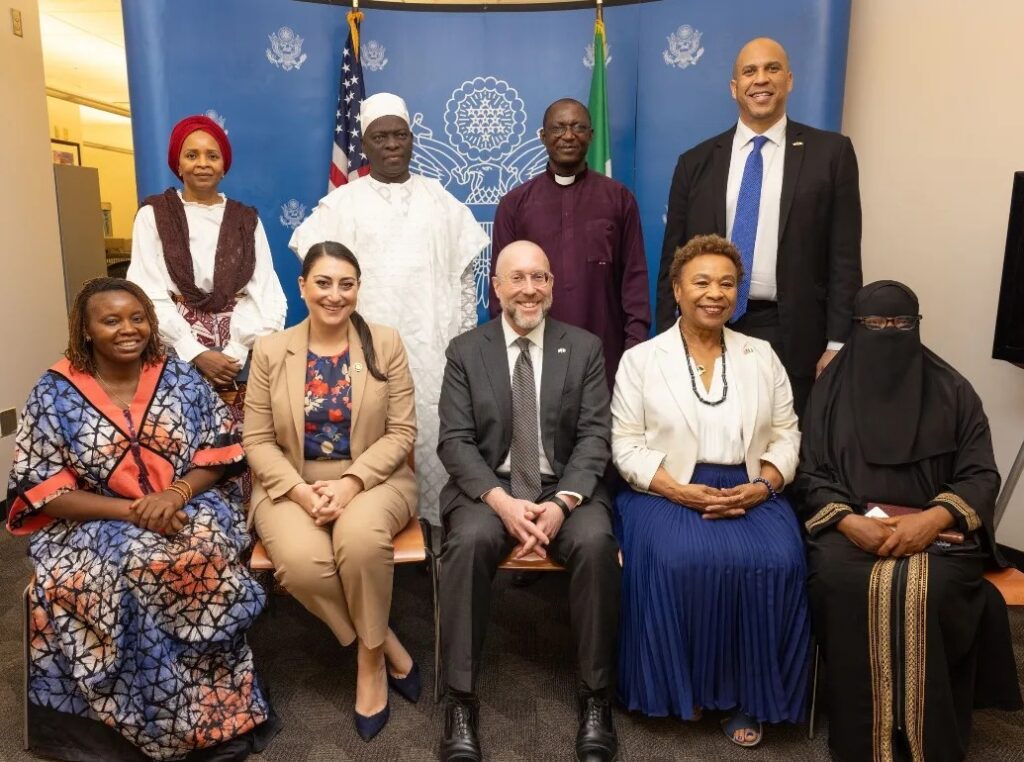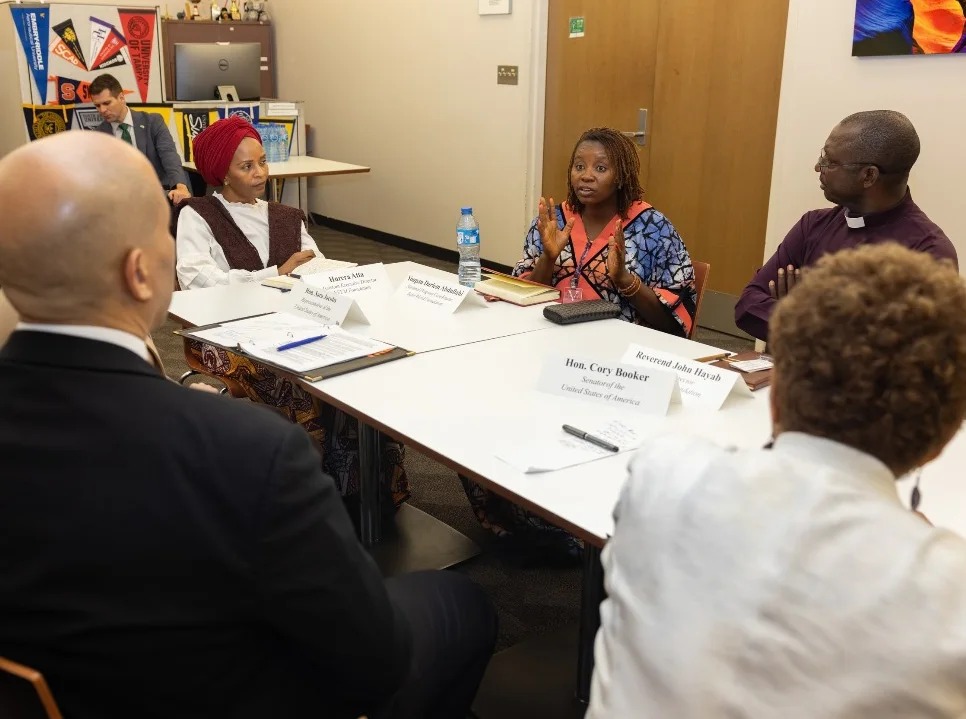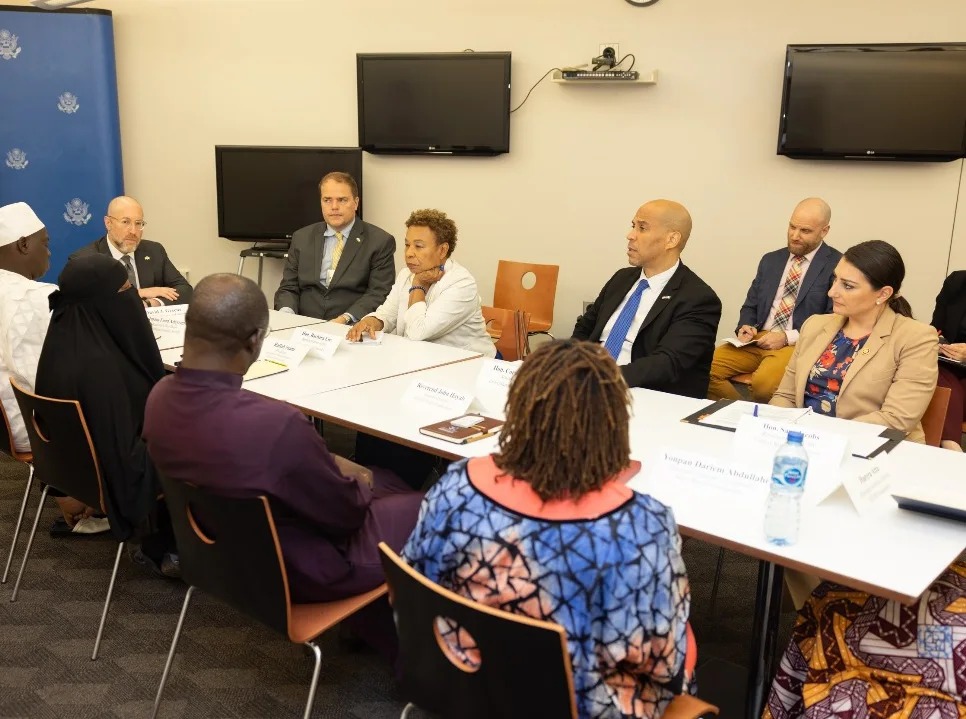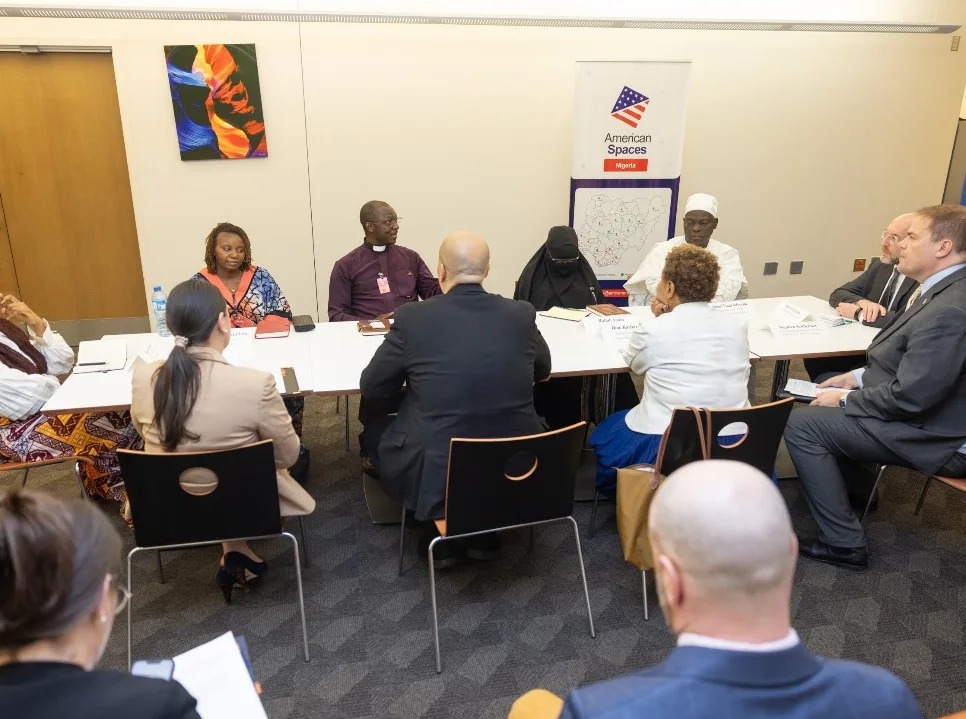Strategic Peacebuilding and Trauma-Informed Support: Safer World Foundation's Role in Global Dialogue

A few weeks ago, Safer World Foundation had the profound honor of participating in a roundtable discussion hosted by the US Embassy, featuring a distinguished delegation from the United States of America. This event brought together an impressive array of attendees, including the Chargé d’Affaires, a US Senator, two Members of Parliament, representatives from USAID, and various NGOs. The focus of the discussions was particularly meaningful, as the group explored vital topics such as peacebuilding, social cohesion, religious freedom, and mental health psychosocial support.
At Safer World Foundation, there is a strong belief that promoting peace and fostering social cohesion requires a deep understanding of the local and regional dynamics that drive conflict. Represented by her National Programme Director Yonpan Dariem, Safer World Foundation was privileged to share its perspective on how the American government could play a pivotal role in allocating resources towards more sustainable and impactful projects across Nigeria during this roundtable. One of the core messages delivered was the urgent need for rigorous research to understand better the complex and unique drivers of conflict within Nigeria’s diverse states. “These insights are crucial to addressing the root causes of violence, and they must form the foundation of any meaningful intervention” according to Yonpan Dariem.
Beyond research, Safer World Foundation also emphasized its commitment to adopting a trauma-informed approach in all project designs.
“This strategy has proven to be essential in amplifying the effectiveness of peacebuilding initiatives, particularly in conflict-affected areas. By integrating an understanding of trauma and its effects into its work, we (Safer World Foundation) ensure that its programs not only address immediate challenges but also contribute to long-term healing and stability.”
Sharing these successes and insights with such an esteemed group of individuals was a humbling experience, and Safer World Foundation left the discussion with a deep sense of purpose and optimism. The organization is immensely grateful for the opportunity to contribute to these high-level conversations and to represent the important work it does.
Looking ahead, Safer World Foundation is excited about the potential for future collaborations that will stem from this dialogue. The organization’s commitment to driving impactful change through strategic conversations and trauma-informed development work remains unwavering. As Safer World Foundation continues to advocate for sustainability and deeper understanding in peacebuilding efforts, it is more determined than ever to create lasting, positive change in the communities it serves.


